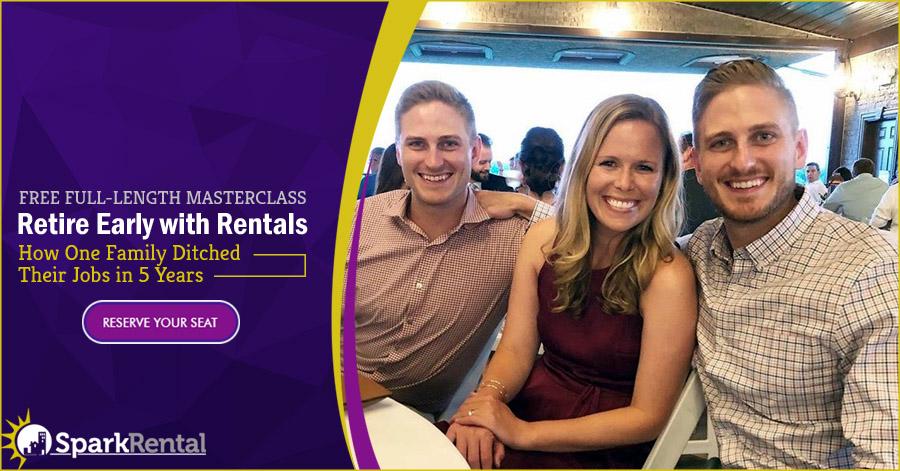
Guest article by Alex Tkachenko from RentBerry.
When should you collect a holding deposit, as a landlord? And what laws govern them?
Deposits, of both the security and holding variety, are regulated by state landlord-tenant laws in the US. Which doesn’t mean there’s no gray area, of course. There are plenty of blind spots in those landlord-tenant laws, and we often hear from landlords asking what they can and can’t do to make sure they avoid unnecessary legal fights.
Here’s what you need to know about holding deposits, when to charge them, and the risks involved.
What Is a Holding Deposit?
First of all, let’s make sure we’re on the same page and define what the “holding deposit” is.
When a landlord strikes a deal with a tenant, but they do not sign a written lease agreement, both parties wants to be sure that deal is legit. Tenants want to make sure that the rental unit will not be leased to someone else while the landlord runs the necessary tenant screening reports and gathers the references. On the other hand, the landlord agrees to temporarily hold the rental for a small cash fee. This is what people call a “holding deposit.”
It’s a common situation when a tenant loves the apartment, but needs to wait for a check or
borrow more money to pay the full up-front rent and security deposit. Holding deposits become a guarantee that the landlord will wait for a brief period and won’t lease the apartment to someone else.
What’s the Difference Between a Security Deposit and a Holding Deposit?
Landlords collect security deposits to make sure that a tenant won’t damage the place while
occupying it. The holding deposit is a guarantee for both parties that their pre-lease
arrangements are followed and both tenant and landlords are not just wasting time and
money.
A holding deposit is collected before you sign a written lease agreement, while the security deposit is collected after.
The theory goes that if the prospective renter fails to come up with the rest of the money for the first month’s rent and security deposit, they forfeit their holding deposit and the landlord continues advertising the unit for rent. But in reality, many states require that the landlord prove they suffered “damage” by ceasing to collect rental applications from other applicants and holding the unit for the one prospect.
Which is one of several reasons why holding deposits typically make for bad landlording. Many jurisdictions tilt heavily in tenants’ favor.
The Problems with Holding Deposits
As outlined above, many state laws aren’t crystal clear about how to resolve holding deposit disputes. And even when they are, many tenant-friendly jurisdictions tend to side with the tenant regardless.
Some tenants request a refund, even when they did not fulfill their side of the arrangement. And then challenge the landlord in court over it, because it costs them nothing to initiate a suit in small claims court.
Holding deposits also lead to frequent misunderstandings, since they’re often not accompanied by a written contract.
But the biggest problem with holding deposits is simply that it means renting to a tenant who doesn’t have enough money to move in. If they can’t come up with the security deposit, first month’s rent and any other required payments, what makes you think they’ll be a reliable tenant?
When Landlords Should Even Consider a Holding Deposit
If you own a rental property in a low-demand neighborhood with high vacancy rates, sometimes you get desperate for any renter who expresses interest and looks like they might be able to afford it.
Which is precisely why you shouldn’t invest in low-demand areas. But I digress.
Ideally, stand by your policy of collecting a full security deposit, first month’s rent, and possibly last month’s rent upon signing the lease agreement, and not holding the unit until that time. But if you get desperate, you can consider a holding deposit.
How Much Should Landlords Collect as a Holding Deposit?
Usually, you should ask a holding deposit amount that will make you comfortable and cover
potential financial loss for not renting an apartment to someone else earlier.
An average holding deposit fee varies from $100 to $400. It depends on the value of your
rental and how big is the interest of other tenants.
Make sure you understand that the holding deposit is not necessarily “non-refundable.” The
amount a landlord can deduct if a tenant fails to meet the arrangements depends on how
significant the loss is from the business point of view and what is the number of the day the
landlord had to wait.
Are Holding Deposits Legally Binding in the US?
Some US states have the corresponding statutes to regulate the holding deposits. However,
many states do not. This doesn’t make them illegal; this just means that in most of the cases, the holding deposit laws are either unclear or simply ignored by the government.
Unfortunately, that’s the main reason why holding deposit may be a risky idea for an average
landlord or property manager.
(article continues below)
How Landlords Can Protect Against Holding Deposit Legal Fights
There is a simple way to assure that both parties fully understand what the holding deposit is and how it works. To avoid any legal fights and headache, you need a written agreement regarding the holding deposit.
The agreement should include the following information about this deposit:
- Holding deposit amount that landlord collects from the tenant
- The rental unit address and other listing details
- Both landlord’s and tenant’s names
- The time frame of the rental unit being held before the deposit becomes forfeit
- The term of lease agreement parties plan to sign after
- Conditions of the future lease agreements (like the rent price, security deposit, whether the holding deposit will be applied to the rent payment for the first month or the security deposit)
- The amount of holding deposit that landlord will keep if a tenant fails to sign the final lease agreement.
The landlord can calculate the financial losses by prorating the daily rent price plus coverage of your inconveniences.
Situations When Landlords Are Obligated to refund the Full Holding Deposit
Most of the tenants know how to get the security deposit back, but the holding deposit topic is not that clear for many of renters and landlords as well. Now it’s time to figure out when landlords have to refund the full amount of the holding deposit.
Tenants who get additional assistance from the government via the programs like Section 8 are entitled to the full holding deposit refund if the rental unit fails the appropriate inspection. There is a qualified program inspection group that will review the apartment and confirm whether it meets the program requirements.
Since failing the inspection is not the same as losing the interest in the apartment, landlords can no longer hold this deposit.
Also, make sure you note that not holding the inspection within 10 days after your agreement doesn’t allow landlords to keep the deposit either. The landlord will have to return the money in full and will be able not to consider this tenant for his/her rental.
If this landlord fails to return the holding deposit, he will be responsible for a double fee according to the law.
Final Thoughts
Holding deposits are a controversial concept that landlords have to take seriously. Whenever someone asks you to hold a rental unit and offers a holding deposit to ensure it, landlords have to make sure they have the full written agreement and acknowledge the tenant regarding the possible remedies for not fulfilling the pre-lease arrangements.
Not all prospects who offer a holding deposit are inherently bad tenants, but landlords still have to be careful to avoid legal consequences.♦
Have you ever accepted a holding deposit? What happened?
More Landlording Reads:
I want to know more about…
About the Author

Alex Tkachenko is an editor of Rentberry and LandlordTips blogs, and an experienced specialist in the tenant-landlord laws. He performs deep market research and provides his expertise in property management niche to those who seek it online.



























I’ve never heard of a holding deposit, given I am fairly new to being a landlord. This is a great idea and something I will keep in mind in the future. As always, very helpful and a good read. Thanks!!
I remember when I was renter looking for an apartment the leasing agents hard sell holding fee when you applied or even took an application. I suppose it was part of their sells pitch requirement.
In some states its not legal to take security deposit and rent if a lease has not been signed. That is a reason some landlords will take a holding deposit if a tenant wants to prevent losing a rental while their background check is pending.
I’m about to take someone to court about my 3,800 holding deposit for a daycare center started getting paper work together then i realized i would not be able to afford the monthly payment of 3,800 a month not to mention the 3 months he wanted in advance 11,400 there was a written agreement deadline date was September 1 2021 I came out of the written agreement before September 1 and he only returned 1,800 back to me not to mention he was still fixing up the building now he selling the building I believe he was never going to rent the building out as a daycare now its a apartment get the hell out of here i will see him in court for my 2,000